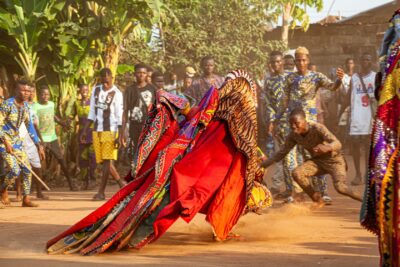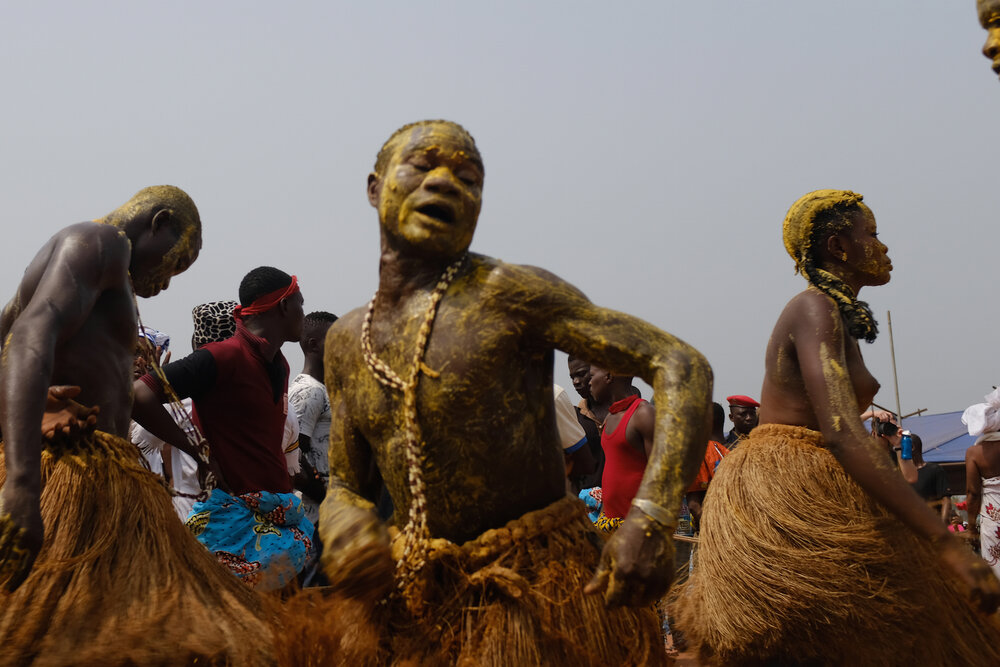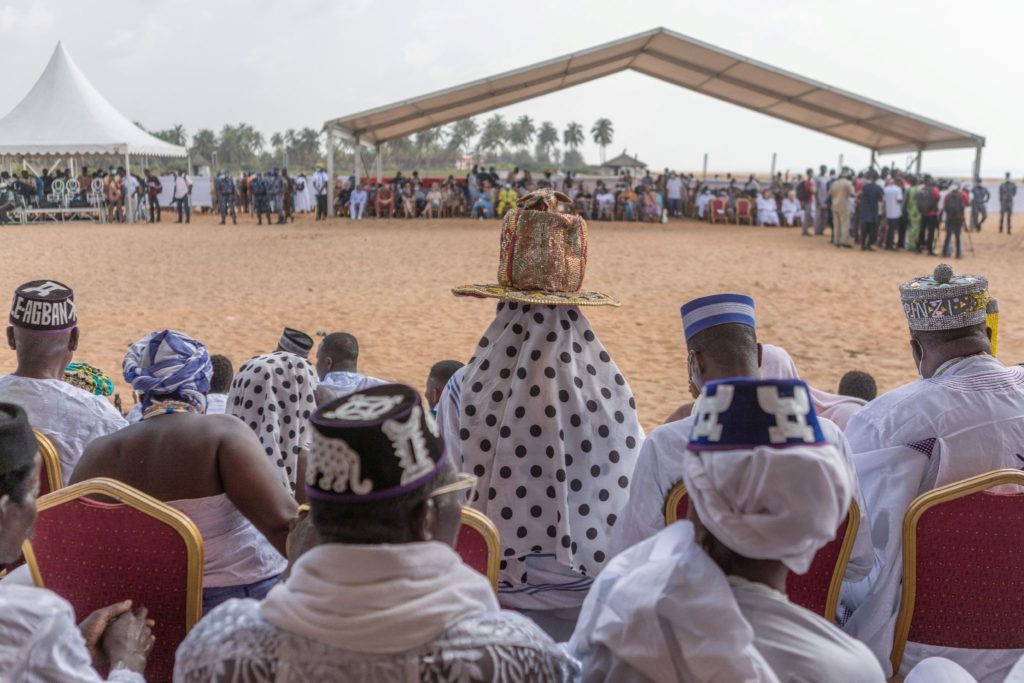
Deity dancing during the ritual
January 2nd to 10th marked the fifth edition of the International Festival of Voodoo Culture, Arts, and Civilization that was held in the African nation of Benin. The theme of the Festival was: “Restoring Benin’s heritage. Research on the origin and transmission of knowledge in Porto-Novo’.
The 2022 Festival was an opportunity to present to the world the cultural and historical richness of Voodoo and to break down prejudices about the black arts, through the discovery of rhythms, dances, architecture, and culinary arts from the most exotic to the most contemporary.
While the event is significant, at least for the people of Benin and thousands of others who came from around the world to participate in it, it received little attention from news media that often covers Africa only when bad news strikes.
I took some steps by trying to learn more about this important tradition and the cultural aspects of Voodoo in West Africa.
Voodooism was recently recognized as an official religion in Benin. Rituals play an important role in this belief. Its central philosophy is to nurture the spirit. It sees human beings as spirits living in the visible world.
The Colonial Origins of Voodooism
Restoring balance and energy between people, and between people and spirits in the invisible world, is the aim of the Voodoo believers’ lives. It has an oral tradition from family to family, in which the spirits are inherited by descendants to whom respect and devotion must be given.
When talking about Voodoo we must mention colonialism, a historical period that has marked, and still marks, the take over of different geographical areas of the world. This historical context is of paramount importance when it comes to our perception of voodoo today.
Haiti, a former French colony, seems to be the birthplace of Voodoo. Haiti is the place where Voodooism was first recognized as a religion. During colonialism, this religion allowed the Haitian population to gain certain independence of worship, which we know was not easy when you are ruled by one of the most bloodthirsty colonial masters in the world.
What Happens During a Festival
Various rituals take place during the festival. Mami Wata is the name of the main deity of this festival. “Mami Wata” is an English pidgin from West Africa that literally means “Mama Water” or “Mother Ocean.” From Madagascar to Morocco, Liberia to Mozambique, Mami Wata is the African water spirit who appears in the form of a mermaid. It is said that those she takes for her lovers return with a new spirit and become luckier and more beautiful. She is a symbol of fertility, a protector of women and children, a guardian of sea creatures and natural environments.
To start, an altar is created where flour, chicken blood, and a few sprites are placed. A little palm liquor is then drunk before pouring the residue over the offering. The glass is then broken into small fragments, which are also added to the offering. When the offering is ready, the deity comes alive and twirls gracefully over it, hiding it completely under the costume. As soon as the deity moves, there is no trace of the offering.
 Sébastien Roux
Sébastien Roux Man dancing during the ritual that took place during the Festival of Voodoo in Benin
As soon as the deity moves, there is no longer any trace of the offering. This means that the deity has accepted the offering and therefore the spirit of the deceased has been taken to a safe place where it will remain in peace and from where it can never return to harm the living. The deity is not animated by a person under the great costume, but only by the spirit, it represents.
To demonstrate this, the costume is then turned upside down, showing the spectators that under the large mask there is simply a doll, sometimes there may be a branch, sometimes a snake. The ritual continues with a big drum party, in which the whole village participates. The deities dance and twirl in the village square, accompanied by the initiates, the only ones allowed to touch a deity.
Education Can Help Change Our Perceptions
Voodooism began as a way to escape the oppression and enslavement of the French colonizers. The negative connotations and misconception of voodoo with satanism and savage sacrifices depend on what the former colonizers brought to the world. But the creative emancipation that constituted the birth of this religion is often ignored.
As a practice, Voodooism is made to create a community in the world, a feeling of security between the people of the present and the people of the past because memory is something that keeps the tradition alive. Although people who practice the religion are not exiled from the modern world, it appears they are silenced and canceled by today’s popular culture.
So we should perhaps ask ourselves why we believe the Western narrative, which does not allow us to accept the purity and incredible magic of voodoo. Often our worldview is clouded by different narratives and perspectives, and we struggle to deconstruct certain preconceptions that can help us understand the origin and nature of certain things. We look at the “other” with a critical eye, at otherness as savage. What is this so? From the fact that we consider our concept of modernity should be the same everywhere, so we do not accept other ways of living life.

